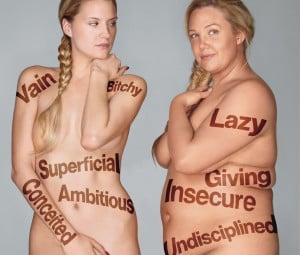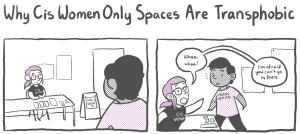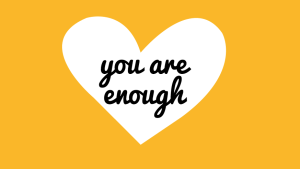
Source: E Intervention
Within the last week, I’ve heard a lot of people verbally beating themselves up. Which I guess is unsurprising, since I hear it a lot all of the time.
“I just feel stupid for having done that” or “I feel like I’ve made some really poor decisions” is what I keep hearing – time and time again – on the other end of the line.
We want to honor all of the feelings that we feel, which means even the crummy ones, but it’s only actually healthy if we let ourselves off the hook for feeling whatever it is we’re feeling.
It’s kind of like Confucius said: “To be wronged is nothing unless you continue to remember it.”
Letting yourself be as you are is hard, but it’s also possible.
Here are some techniques to help you through.
1. So What?
There will come a point in time when you’re talking to a friend, or maybe at home in bed replaying the event that has you down, when the conversation with someone or yourself spirals out of control.
You dig yourself so deep in frustration and full out disgust with yourself that sooner or later, you’re listing off reasons to be disappointed in yourself in rapid succession.
“I’m 33 and not financially stable, not in a relationship, without kids, not happy, not satisfied, not sure what to do with my life.”
And suddenly, you’re balled up on your bed watching the full five seasons of any given show on Netflix in two days, getting up only to refill your coffee mug or meet the Thai delivery guy at your door.
But it doesn’t have to get to that point.
It’s at the moments when you start beating yourself up that you can choose to continue as you are until you’re even more exhausted and annoyed at yourself, or you can simply look in the mirror and say, “So what?”
“Yes, I feel bad that I didn’t call my friend on her birthday, but so what?” “Yes, I ended up sleeping with someone I told myself I would no longer hang out with, but so what?” “Yes, I stayed in a relationship longer than I should have, but so what?”
So what?
Because what’s done is done.
All we can do now is accept our actions and see them not as reflections of who we are, but as symbols of what we still need to learn.
When you start boarding onto the Hang-Yourself-Out-to-Dry train, stop in your tracks and say to yourself, “So what? I did what I did. It’s okay. What’s done is done. Now I’ve given myself an opportunity to learn. What is this event that’s disrupted my life trying to teach me?”
2. The Past Is the Past
Instead of looking at the past as something that continues, think of it as something that stops.
Today is not a continuation of yesterday. It is completely new.
Today is its own day. Because after this day passes, it never happens again.
A lot of why we don’t like ourselves as we are has to do with things that happened yesterday, the day before, the week before, the month, year, or decade before.
But what would your life feel like if all you had was today?
What would you focus on? What would you do differently?
Steve Jobs said, “Remembering that I’ll be dead soon is the most important tool I’ve ever encountered to help me make the big choices in life.”
Sometimes the way to let ourselves off the hook is to remind ourselves that this is all we get.
If you had only thirty days to live, what would you do?
Would you want to be kinder and more loving to yourself? Would you want to try something you’ve never done before? Maybe you’d like to read those fifteen books you’ve always said you’d get to.
The point is: Our lives are happening now, which means we’re likely to forget about the hurt and anger at ourselves and focus on what we can do now to make our lives better.
3. See Setbacks As Ways to Practice Self-Compassion
Mark R. Leary, a professor of Psychology at Duke University, found that people who have self-compassion are able to love themselves despite their failures, and see setbacks as part of the normal human condition.
Self-compassion helps us eliminate the anger and depression associated with what we see as mistakes or setbacks.
Think of practicing self-compassion as looking at yourself like you would a child. Treat yourself with the same tenderness you would your niece or nephew.
Practice this kind of compassion by meditating for five or ten minutes a day, or by sitting in silence with yourself. What you’re doing is accepting yourself as you are in the moment.
You are not supposed to be anything more or less than who you are right now.
***
Go ahead and take a minute and think about what your life would look like if you let yourself feel what you feel and didn’t get upset with yourself for feeling that way.
When I started putting the above into practice, the landscape of my life changed.
We all make mistakes, fail, and make wrong decisions at some point.
But if we internalize the events and judge ourselves based off of a failed marriage, a bad grade, or a missed opportunity, we’ll never grow out of these negative self-evaluating patterns.
Setbacks happen, but it’s using these events to enrich our lives that help us move forward.
[do_widget id=”text-101″]
Over the last year and a half, Cynthia Kane relearned the following: how to jump up and down when she’s happy, cry when she’s sad, laugh when something’s funny, take a compliment, smile at strangers, and be open to the fact that everyone is going through it all the time. For more, visit her website or follow her on Twitter @cynkane.
Search our 3000+ articles!
Read our articles about:
Our online racial justice training
Used by hundreds of universities, non-profits, and businesses.
Click to learn more




















